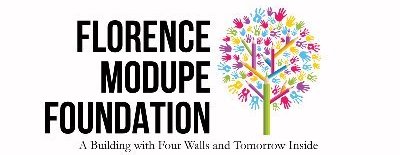The Challenge
“All children, no matter where they live or what their circumstances, have the right to quality education” (UNICEF DECLARATION). Also, all women that are less privileged or vulnerable in society are expected to get help in cases whereby soft skills or self-vocational skills gained are also provided with what they need to start up these businesses, as well as cases where women who are vulnerable and can’t really take care of their family are not just empowered but also provided foodstuff to feed their homes. On this basis, the Florence Modupe Foundation was established as a response to a national emergency that has grown beyond what governments alone could tackle. The statement below was quoted from UNICEF’s website.
“One in every five of the world’s out-of-school children is in Nigeria. Even though primary education is officially free and compulsory, about 10.5 million of the country’s children aged 5 to 14 years are not in school. Only 61% of 6 to 11-year-olds regularly attend primary school, and only 35.6% of children aged 36 to 59 months receive early childhood education.
In the north of the country, the picture is even bleaker, with a net attendance rate of 53%. Getting out-of-school children back into education poses a massive challenge”.
This statement aptly captures the ticking time bomb the country is currently sitting on. For every society that experiences growth and development, education is the bedrock for a society facing a myriad of challenges like ours. The poor educational system is the reason why we are where we are today, which has also been fueled by lack of proper planning for women who are in rural areas and have not been able to escape poverty. We work to ensure that these vulnerable women are also upheld in society and given a sense of belonging by empowering them through provision of things for them to use for their vocational skills, such as setting up small SMEs for them to trade, as well as providing them foodstuff from time to time to help their families.
The poor state of education in Nigeria has contributed to a high rate of unemployment in the country, which hits an all-time high of 27.10% in the second quarter of 2020 according to tradingeconomics.com. Apart from this, access to education has become more expensive as government schools can no longer meet the demand from parents seeking to expand the quality of education. While the available privately owned schools are expensive and way beyond the budget of some of these parents, this has greatly increased the number of children who irrespective of their intellects have been thrown out of school into the streets where they take up odd and menial jobs to survive. This is a huge challenge that can’t be wished away by mere motivation but by taking concrete steps to address the challenges. For us at Florence Political Foundation, this is why we are here, to democratize access to education for children in Nigeria and life changing skills for the youth, especially the women, empowering them and ensuring that they are better than their yesterday.

